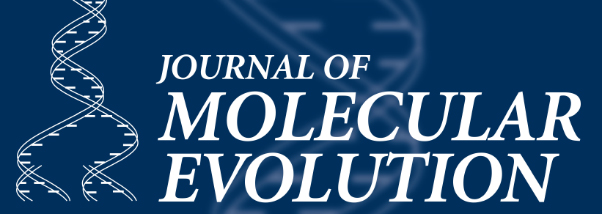The Journal of Molecular Evolution Advances Meeting
March 17-19, 2023, American University Campus, Washington, DC, USA
Schedule:
Friday, March 17, 2023
1:00pm — Welcome from AU Dean Linda Aldoory
1:30pm-3:00pm — Talks
1:30 — David Liberles, Temple University
Modeling the genotype-phenotype map by combining expectations from population genetics and biochemistry
2:00 — Arturo Becerra, National Autonomous University of Mexico
Early evolution and the nature of the LCA
2:30 — Eric Haag, University of Maryland
The species-specific F-box protein FOG-2 enables self-fertility in C. elegans via a novel co-translational ubiquitination mechanism
3:00pm-3:30pm — Coffee
4:00pm-5:30pm — Talks
4:00 — John Bracht, American University
Evolution of a more efficient mitochondrial cytochrome c oxidase in nematodes
4:30 — David Alvarez-Ponce, University of Nevada
Myxosporea (Myxozoa, Cnidaria) Lack DNA Cytosine Methylation
5:00 — Einat Hazkani-Covo, The Open University of Israel
Template switching is a source of nonsynonymous substitutions in wild-type yeast
5:30pm — Dinner on own; a suggested destination where several of us will convene is Shaw Brewpub and Kitchen (624 T Street NW)
Saturday, March 18, 2023
9:00am-10:30am — Talks:
9:00 — Lindsay Hays, NASA Astrobiology Program
9:30 — Paco Moore, NSF Evolutionary Processes Program
10:00 — Amanda Wilson, Temple University
Expectations of Duplicate Gene Retention Under the Gene Duplicability Hypothesis
10:30am-11am — Coffee
11:00am-12:30pm — Talks
11:00 — Keith Crandall, George Washington University
Computational Approaches to Microbiome Characterization
11:30 #8212; Arndt von Haeseler, University of Vienna, Austria
Measuring Phylogenetic information
12:00 — Alejandro Gil Gomez, Stony Brook University
Wiring between close nodes in biological networks evolves more quickly than between distant nodes
12:30pm-1:30pm — Lunch
1:30pm-3pm — Talks
1:30 — Cara Weisman, Princeton University
Lineage-specific genes: novelty or noise? How to tell and why it matters
2:00 — Jody Hey, Temple University
Balancing selection is common for beneficial alleles in a human population
2:30 — Meru Sadhu, National Human Genome Research Institute, NIH
Long-read genomes reveal pangenomic variation underlying yeast phenotypic diversity
3:00pm — Coffee & poster session start
6:30pm — Editorial Board Meeting at Guapo’s (4515 Wisconsin Ave. NW) with Dinner for the Editorial Board (others: dinner on own)
Sunday, March 19, 2023
9:00am-10:30am — Talks
9:00 — Josh Rest, Stony Brook University
Genetic variation in protein expression responses to heat: independence of expression level, variance, and scaling with cell size
9:30 — Joana Carneiro da Silva, University of Maryland School of Medicine
Genome-wide sieve analysis: using population genetics principles in applied vaccinology
10:00 — Jenna Archambeau, American University
Coral microbiomes across the Red Sea and their potential role in coral thermal resilience
10:30am-11am — Coffee
11:00am-12:30pm — Talks
11:00 — Michelle Meyer, Boston College
Using network clustering to investigate the evolution of RNA gene regulators
11:30 — Greg Lang, Lehigh University
Rock, paper, scissors: nontransitivity in experimental evolution<br>
12:00 — Keith Hackbarth, University of Maryland
Dosage Compensation and Meioitic Silencing on the Neo-X Chromosomes of Filarial Nematodes
12:30pm-1:30pm — Lunch
1:30pm-3:30pm — Talks
1:30 — Ananias Escalante, Temple University
Evolution of primate malaria parasites
2:00 — Ayna Mammedova, Temple University
Spatial clustering of amino acid substitution in proteins
2:30 — TreVaughn Ellis, American University
The Devil worm’s efficient mitochondria: Adaptation of H. Mephisto’s electron transport chain in extreme conditions
3:00 — Ryan Skalsky, University of Maryland School of Medicine
Analysis of Structure and Epitope Characteristics of Novel Plasmodium falciparum Antigens
Program and Organizing Committee:
John Bracht, American University
David Liberles, Temple University


